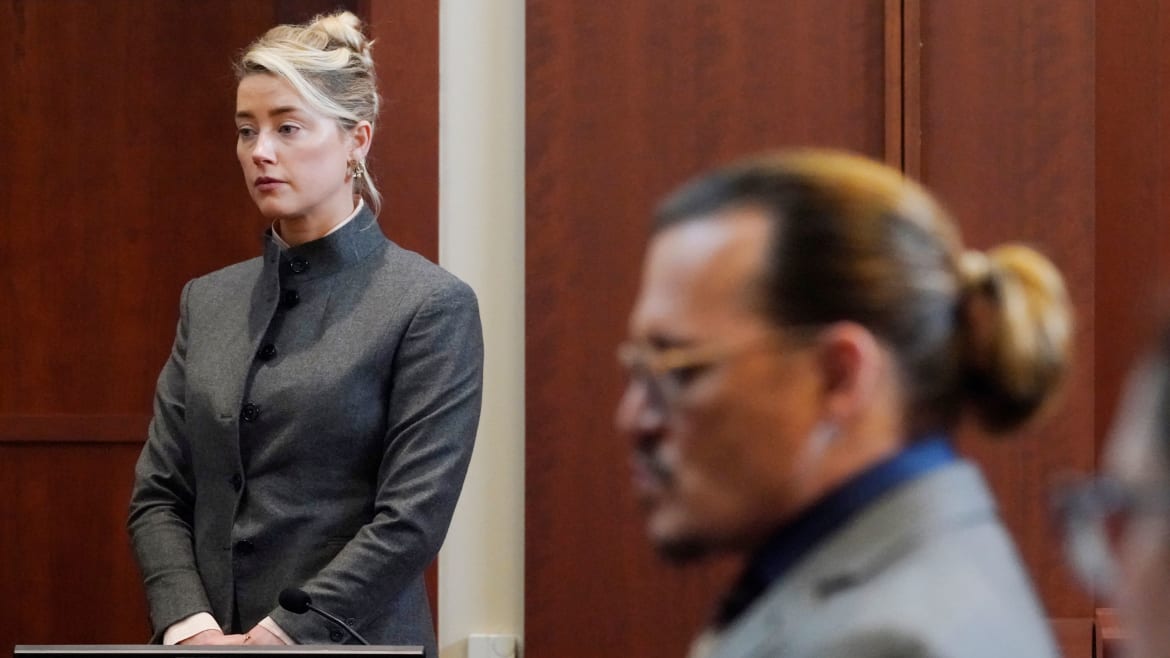Steve Helber/AFP/Getty
For seven weeks, our social media feeds were held hostage by the Johnny Depp v. Amber Heard defamation trial in Fairfax County, Virginia. Depp, who’d previously been found by a U.K. judge to have abused Heard on 12 occasions, alleged three counts of defamation by Heard related to a 2018 op-ed she published in The Washington Post wherein she called herself a “public figure representing domestic abuse” who spoke out against “sexual violence.”
The Pirates of the Caribbean star claimed the piece damaged his reputation and career to the tune of $50 million, prompting Heard to file a $100 million counterclaim against Depp. On June 1, after 61 hours of testimony from each side, including dozens of experts and witnesses, all of which was livestreamed to a ravenous public, the jury ruled that Heard had defamed Depp, awarding him $10.35 million in damages; Heard, meanwhile, was granted $2 million.
Heard’s team has since filed a post-trial motion asking the court to set aside the verdict or order a new trial, arguing that Heard played no role in crafting the op-ed’s headline that had the phrase “sexual violence” in it (this much was revealed during the trial); that the amount awarded to Depp was disproportionate; and that a juror may have impersonated another juror. The judge denied the motions, though Heard can still appeal. Depp, for his part, launched a TikTok account—presumably as a thank you to his legion of rabid fans, who flooded the algorithm with selectively curated clips from the trial favoring their hero—and quietly settled a lawsuit with a crew member who claimed that the actor drunkenly assaulted him on the set of City of Lies (that case was set to go to trial this month.)

